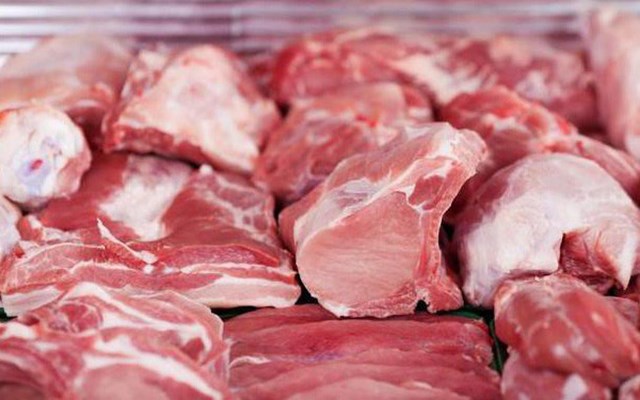 Economy
Economy

The domestic pork prices could be stabilised by this year end, Deputy Minister of Industry and Trade Đỗ Thắng Hải said at a Government meeting on Tuesday in Hà Nội.

|
| The pork price increase has been due to the high pork demand in the domestic market. — Photo vinanet.vn |
HÀ NỘI — The domestic pork prices could be stabilised by this year end, Deputy Minister of Industry and Trade Đỗ Thắng Hải said at a Government meeting on Tuesday in Hà Nội.
The higher pork prices at present have affected the national consumer price index (CPI) and economic balance. This has also created more difficulties for people amid the COVID-19 pandemic.
The pork price increase has been due to the high pork demand in the domestic market while the local pork supply has fallen due to African swine fever, he said. Even if this disease ends, farmers could not promote production of pigs because of the fear that the disease returns.
Pig herds at large production enterprises have accounted for 35 per cent of the national pig herds and the rest is concentrated in small farming-households, he said.
There are two solutions to ensure balance between supply and demand as well as reduce pork prices, including re-production of pig herds and pork imports, Hải said. By year end, the local pork supply could reach the level it was before African swine fever.
For pork imports, the Government has requested the Ministry of Agriculture and Rural Development (MARD) to coordinate with ministries and sectors, such as ministries of Industry and Trade, and Planning and Investment, to import pork for domestic consumption.
The Government has created favourable conditions in import procedures for meat importing enterprises, according to Hải.
Those solutions are expected to reduce pork prices at this year end, he said.
Deputy Minister of Planning and Investment Trần Quốc Phương said the Ministry of Planning and Investment has worked with enterprises to import pork for domestic consumption but people do not have high demand for those products. Therefore, the enterprises have not dared increase pork imports.
According to MARD, the growth rate of pig re-production in the first quarter reached 6.3 per cent. Of which, 15 large pig production enterprises in the country had growth rate reaching up to 17 per cent.
The ministry reported that from the beginning of this year to April 13, Việt Nam imported more than 46,402 tonnes of pork, an increase of 300 per cent year on year. Of which, the pork imports from Canada accounted for 25 per cent; Germany, over 19 per cent; Poland, 14 per cent; Brazil, 9.5 per cent; the US, 8.4 per cent; Spain, 6.7 per cent; and Russia, 4 per cent. — VNS




